History at Bletchingdon
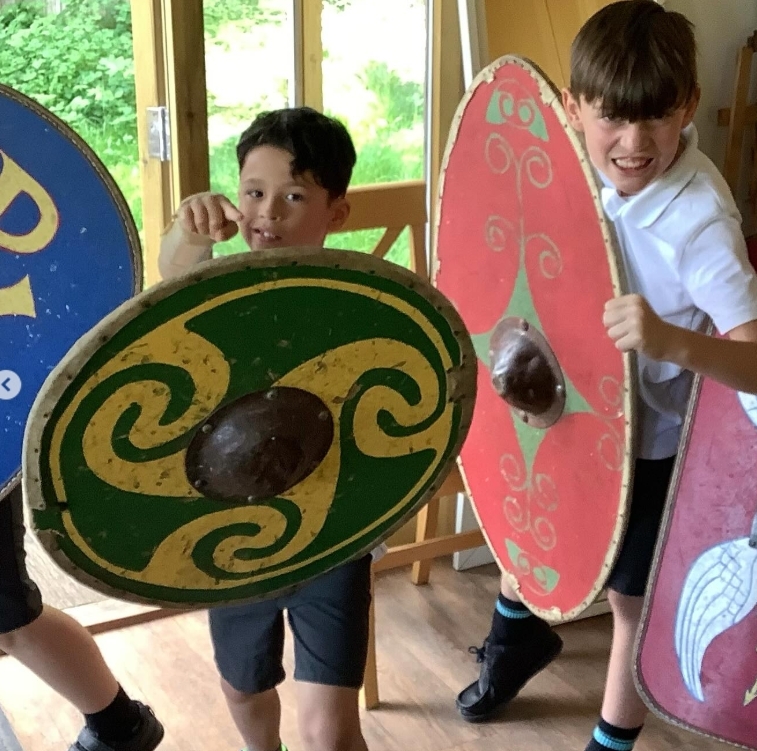
Intent
At Bletchingdon Primary School, our intent is to provide a rich and engaging History curriculum that fosters curiosity about the past and enables children to understand the complexities of human history. We aim to inspire children to explore the local, national, and global history, helping them to make connections between past events and the world they live in today. By focusing on key historical periods, people, and events, we strive to deepen pupils’ knowledge of the past, while also encouraging critical thinking and the development of historical inquiry skills.
Our History curriculum is designed to:
- Explore local history, allowing children to understand the history of their own village, Oxfordshire, and the surrounding area.
- Provide a broad understanding of key periods in British and world history, ensuring students gain an appreciation of how the past has shaped the present.
- Encourage children to question historical narratives, analyze different perspectives, and understand the impact of historical events on society.
- Foster a sense of empathy, cultural understanding, and global citizenship through the study of diverse histories.
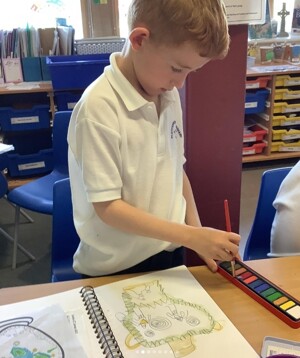
Implementation
Our History curriculum is carefully planned to be both progressive and engaging, allowing pupils to build on their historical knowledge and understanding year on year. We focus on a range of historical periods, from the local history of Oxfordshire to significant global events.
- Local History: Given our location in Oxfordshire, we ensure that children explore the history of their village and the surrounding areas. This includes studying the development of local settlements, key historical events (such as the English Civil War or the impact of the Industrial Revolution), and the role the local community has played in broader historical contexts.
- Chronological Understanding: Throughout the curriculum, we ensure students develop a clear understanding of chronology, helping them to place events within a timeline and understand how the past relates to the present. By studying significant periods such as Ancient Civilizations, the Medieval period, the Tudor period, and the Victorians, students gain a sense of historical progression.
- Historical Skills: We focus on developing pupils' historical skills such as evidence gathering, critical analysis, and historical inquiry. Pupils learn to ask questions about the past, investigate primary and secondary sources, and form their own conclusions based on evidence. This skill-building approach supports both independent and collaborative learning.
- Fieldwork and Visits: Outdoor learning is an important part of our History curriculum. We use our local area to investigate historical sites, such as nearby castles, museums, and landmarks in Oxfordshire. Trips to historical locations and hands-on experiences help students connect with history in a tangible way.
- Diverse Perspectives: We aim to include diverse perspectives in the study of history, ensuring that children understand history from different viewpoints, including the experiences of women, minorities, and people from different cultures. This approach fosters empathy and global understanding.
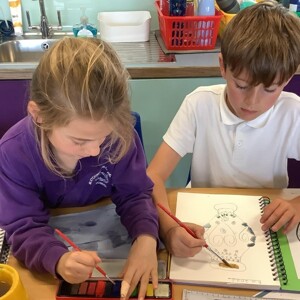
The implementation of our curriculum is greatly supported by carefully structured unit plans, leading pupils through component knowledge and skills to composite knowledge and skills in all subjects. Our pedagogical approach is based on Rosenshine’s Principles of Direct Instruction. The brilliant clarity and simplicity of this approach supports teachers to engage with cognitive science and the wider world of educational research. The Principles of Direct Instruction
1. Daily Review
2. Present new material using small steps
3. Ask questions
4. Provide models
5. Guide student practice
6. Check for student understanding
7. Obtain a high success rate
8. Provide scaffolds for difficult tasks
9. Independent practice
10.Weekly and monthly review
We use Knowledge Organisers in order to help children with knowledge retention and issues around working memory to ensure that children know more and remember more. Our teaching style has a strong focus on the effective retention and use of subject specific vocabulary using Walk The Word techniques.
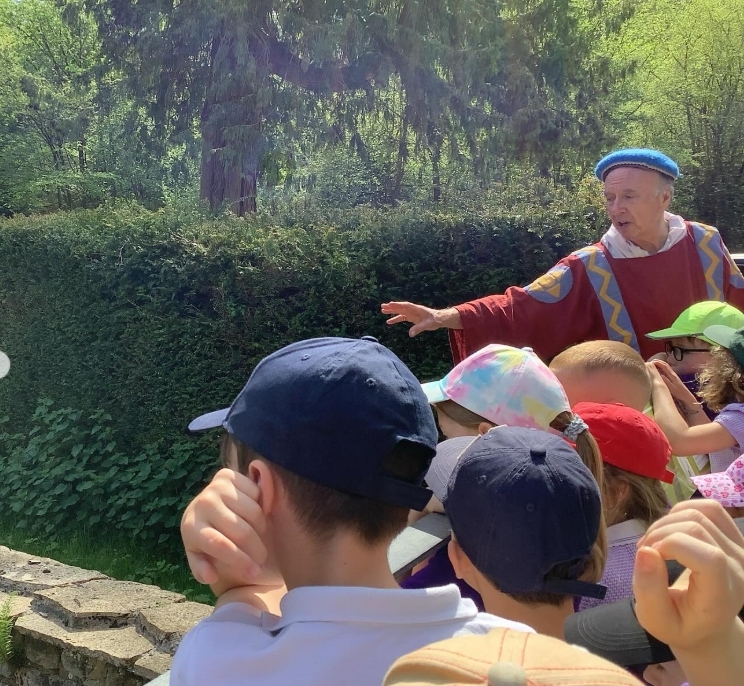
Impact
The impact of our History curriculum is reflected in the depth of knowledge and understanding that students develop, as well as the critical thinking and historical inquiry skills they acquire.
- Knowledge and Understanding: Students leave our school with a clear understanding of the key events, people, and movements that have shaped history. They have an appreciation for both the local history of Oxfordshire and significant global historical events, and they can place these within a chronological context.
- Historical Skills: Pupils develop the ability to think critically and analytically about the past. They learn to evaluate historical sources, ask thoughtful questions, and construct evidence-based arguments. These skills are transferable to other areas of learning and in life.
- Engagement and Curiosity: Our pupils develop a genuine interest in history. They become curious about the world around them and want to know more about how the past influences the present. They leave school with a sense of excitement about exploring history in the future, whether through further study or personal exploration.
- Empathy and Understanding: By studying a diverse range of historical periods and events, students develop empathy and an understanding of people from different cultures, times, and backgrounds. This broadens their outlook and prepares them to be thoughtful, open-minded citizens in an increasingly globalized world.
- Connection to the Local Community: Through the study of local history, pupils feel a deeper connection to their village and its heritage. They understand the historical context of their local environment and recognize the ways in which their community has evolved over time. This fosters a sense of pride and belonging.
- Global Perspective: The study of world history helps students to see the connections between past events and contemporary global issues. By learning about the struggles, achievements, and ideas of people from different parts of the world, students develop a broader perspective and a sense of global citizenship.
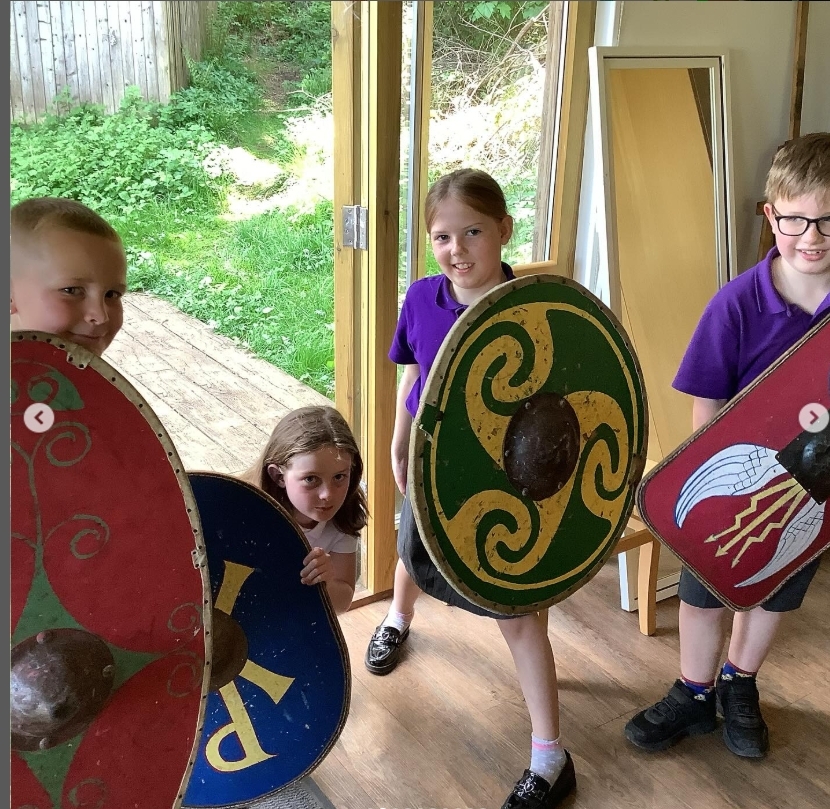
Assessment
From Y1- Y6 children are assessed individually against the knowledge and skills progression documentation and outcomes. Teachers using terms ‘expected’ to state a child is on track or ‘concern’ which indicates a child may need more support.




